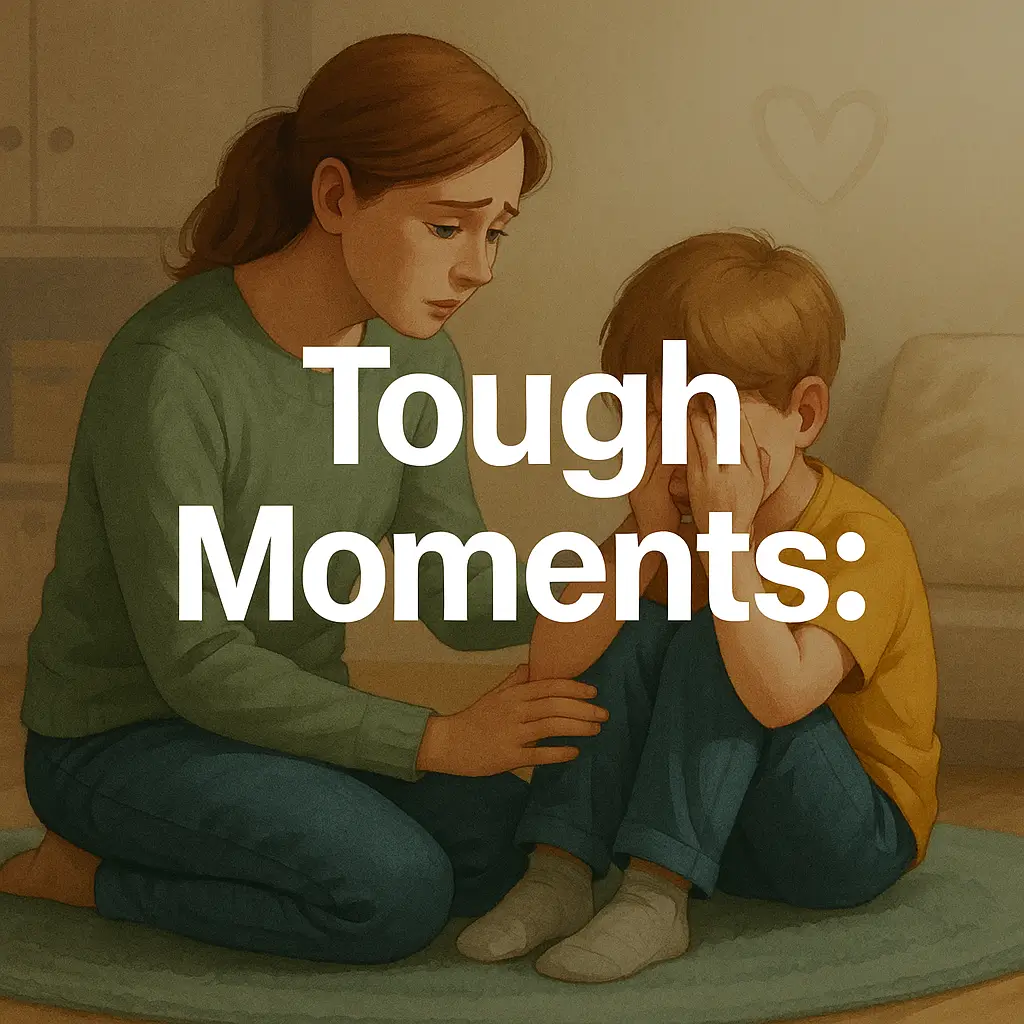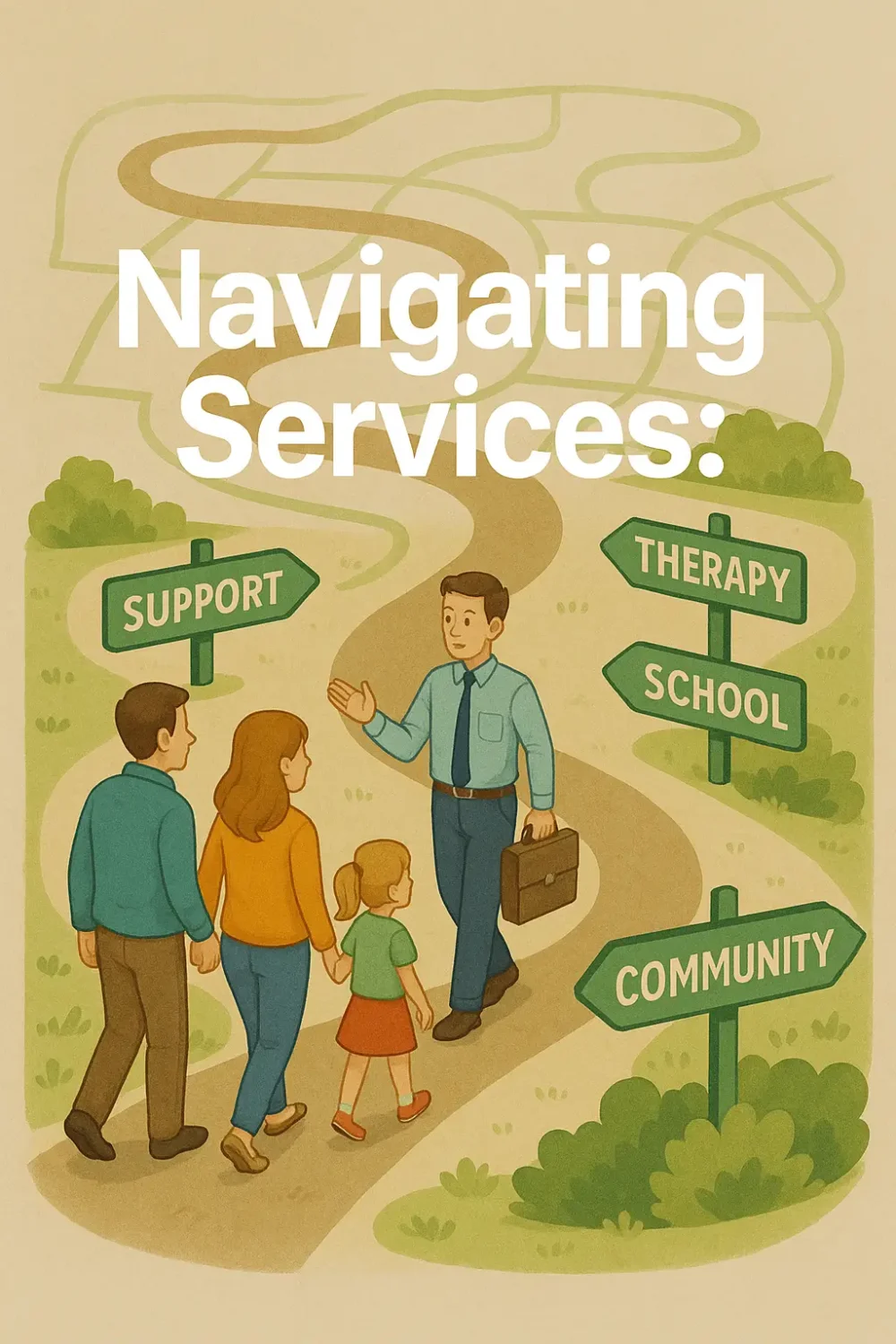Every parent has been there: the grocery store checkout line, the playground, the dinner table. Your child is overwhelmed, their emotions spill over, and suddenly you’re in the middle of a tough moment. It can feel like all eyes are on you, and the mix of exhaustion, frustration, and even guilt can be heavy. If you’ve ever thought, “Why does this always happen to us?” — you’re not alone. And here’s the hopeful part: these moments don’t have to be just about stress. With compassion and the right tools, they can become opportunities for growth and connection.
Understand why behaviors happen
Behavior is never random. It’s communication. When children don’t yet have the words or tools to explain what they’re feeling, behavior becomes the message. Maybe your child is covering their ears because the environment feels too loud, throwing toys because they’re frustrated, or running off because they don’t know how else to ask for a break.
When we pause and ask, “What is my child trying to tell me?” we can start to see the purpose behind the behavior. Often, it boils down to one of a few things: trying to get something, trying to avoid something, seeking attention, or meeting a sensory need. Once we know the “why,” we can help our child find a better way to communicate that need.
Use proactive strategies
Of course, the best way to handle tough moments is often to prevent them before they start. This doesn’t mean eliminating every challenge — life doesn’t work that way — but it does mean setting your child up for success.
Small adjustments can make a big difference. Maybe you dim the lights and reduce background noise before starting homework. Maybe you use a picture schedule so your child knows exactly what the afternoon will look like. Maybe you practice asking for help with words or pictures so your child has a tool to reach for instead of melting down. These strategies aren’t complicated, but they send a powerful message: I see you, I hear you, and I want to make this easier for you.
Stay steady in the moment
Even with the best preparation, hard moments still happen. When emotions are running high, your calm presence matters more than any words you say. Lower your voice. Keep instructions simple. Create space if your child needs it. This isn’t the time for reasoning or long explanations — your child isn’t ready to hear them.
After the storm passes, that’s when the reflection can happen. You might say, “I saw you were upset. Next time, let’s try…” and practice a new strategy together. Slowly, those little rehearsals build new skills, so the next tough moment looks a little different.
Care for your own emotional health
Here’s something many parents don’t hear enough: your feelings matter, too. The truth is, parenting through tough behaviors is hard. It’s okay if you sometimes feel sadness, guilt, or even resentment. That doesn’t make you a bad parent; it makes you human.
Finding someone to talk to — whether it’s a therapist, a support group, or another parent who understands — can make the weight feel lighter. You don’t have to carry the emotional load alone.
Build resilience and celebrate progress
Over time, these moments shape us. They teach patience, creativity, and compassion — not just for your child, but for yourself. And as you keep practicing strategies, you’ll notice changes. Maybe the meltdowns are shorter. Maybe your child tries a new word instead of crying. Maybe they independently ask for a break for the very first time.
These might look like small steps, but they’re worth celebrating. They’re signs that your child is building skills, and your family is growing stronger together.
The bottom line
Tough moments are part of the journey, but they don’t define your child — and they don’t define you. With compassion, patience, and steady support, each challenge becomes less of a wall and more of a stepping stone toward growth, independence, and deeper connection.



